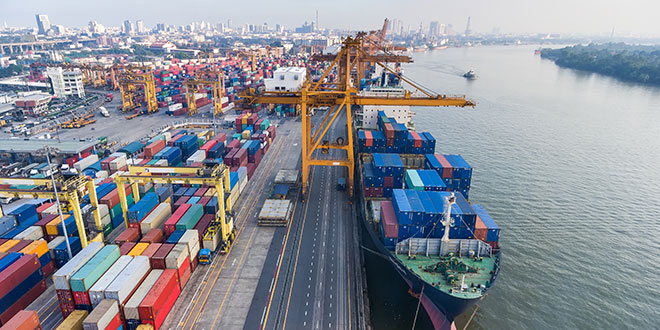Recently, tariffs on goods entering the U.S. have been hot topics in retail. No matter which industry a business operates within, tariff implementations are causing ripple effects on suppliers and shoppers alike.
Retail leaders from some of the U.S.’s best-known companies have discussed the effect tariffs are having on their businesses and customers. Read what executives from Ace Hardware Corp., Target and Walmart have to say about continued tariffs.
Ace Hardware
Appearing on CNBC’s “Squawk on the Street” program, Ace Hardware president and CEO John Venhuizen elaborated on how Ace Hardware is handling recently imposed tariffs.
“The tariffs continue to be an issue all of us are tackling,” he says. “It’s impacting roughly 12 to 15 percent of our overall business, but despite that, we’ve been able to have a very good quarter once again.”
Venhuizen says he doesn’t anticipate tariffs having “a major risk on (Ace Hardware’s) future.”
“Like all retailers, we’re trying to have the supplier absorb those cost initiatives, so we can insulate our customers from the price increases,” Venhuizen says.
When asked which products will be most affected by tariffs and whether those products could be made elsewhere, Venhuizen says the company is considering its options.
“That’s obviously something we’re looking into as well,” he says. “The direct import from China is getting hit heavily in tools … We continue to look to move our supply chain elsewhere, we’ve done that in other areas of Asia, but as you know, that is not a quick fix, that is a longer-term solution, and given some of the uncertainty, it’s hard to know how quickly to move, but it is a lever we are pulling.”
Target
During Target’s quarterly corporate earnings call on May 22, company chairman and CEO Brian Cornell commented briefly on tariffs’ impact on consumers, saying the company has been monitoring the situation closely.
“It has been a fluid situation for quite some time now. Our point of view hasn’t changed. And as we think about tariffs, we reflect on the impact (they) could have and will have on American families that are going to be paying higher prices,” he says.
Cornell praised Target employees for doing a “very good job of trying to mitigate the impact in the short term” and credited the company’s broad inventory as an advantage while tariffs are enacted.
“We have the advantage of a multicategory portfolio, a very talented and experienced sourcing team that operates around the world and sophisticated vendor partners that have been looking at ways to diversify their manufacturing footprint for years now,” Cornell says.
Walmart
Speaking during Walmart’s quarterly earnings call, CFO Brett Biggs says the company remains focused on being “the low-price leader” for shoppers, CNBC reports.
“We want to manage margins with customers and shareholders in mind,” he says. “We have mitigation strategies that have been in place for months. But increased tariffs will increase prices for customers.”
Biggs went on to say Walmart is reviewing the tariff impact and remains “hopeful that an agreement can be reached.”
How Are Tariffs Affecting Your Business?
Have you noticed higher prices on products? How are you communicating price changes to customers? Hardware Retailing is currently collecting information from independent home improvement retailers on how tariffs are affecting their operations.
Take just a few minutes to answer a few brief questions now to help Hardware Retailing and the North American Retail Hardware Association explore the impact of tariffs on independent retailers like you.
 Hardware Retailing The Industry's Source for Insights and Information
Hardware Retailing The Industry's Source for Insights and Information








